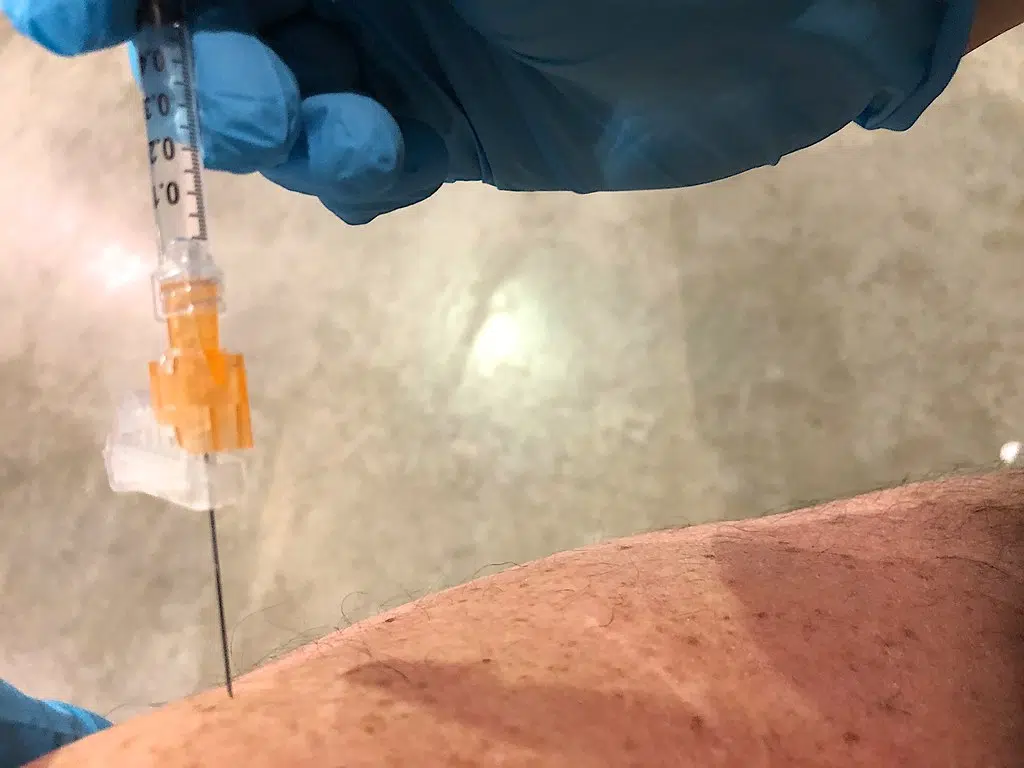New Brunswick health officials are urging people to ensure their measles vaccines are up to date.
The warning comes amid an increase in measles infections both in Canada and internationally.
New Brunswick’s acting deputy chief medical officer of health recently sent a letter to parents and guardians of school-aged children.
“Measles is one of the most contagious infections we know and can be very serious, but fortunately vaccine preventable,” Dr. Arifur Rahman wrote in the letter.
“It can spread from an infected person to others through coughing and sneezing.”
There have been at least 40 cases in Canada so far this year, more than three times the number of cases reported in 2023.
Rahman urges parents to check their vaccine status and that of their children.
Infants and young children are currently offered two doses of a combined measles, mumps, rubella and varicella vaccine at 12 and 18 months of age, as part of their routine immunization schedule.
It is recommended that infants six to 11 months of age who will be travelling outside of Canada receive a dose of measles-containing vaccine.
Adults born in 1970 or later who have not previously had doses of the measles, mumps, and rubella (MMR) vaccine are eligible to receive two doses, or one dose if they already had a dose in childhood.
Those born before 1970 are likely immune from past exposure to measles, according to Public Health, but they should consider getting a dose of the MMR vaccine if they are planning to travel outside of Canada.
Typical symptoms of measles include fever, red watery eyes, runny nose and cough, followed by a red rash that starts on the face and then moves to the rest of the body.
If you develop symptoms of measles, call 811 or eVisitNB and follow their instructions for testing or care.
“Do not go to a healthcare facility or office without calling ahead first,” said Rahman.








